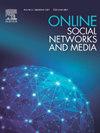利用基于提示的大型语言模型,从社交媒体反馈中进行灾害监测和自动报告
Q1 Social Sciences
引用次数: 0
摘要
近年来,社交媒体已成为灾害和灾难事件发生期间实时报告问题的主要平台之一。虽然在收集此类信息方面取得了长足进步,但仍迫切需要改进用户报告的自动化、聚合和组织,以简化各种任务,包括救援行动、资源分配以及与新闻界的沟通。本文介绍了一种创新方法,该方法利用基于提示的大型语言模型(LLM)的力量来加强灾难响应和管理。通过分析大量用户生成的内容,我们的方法可识别经历过灾难性事件的市民所报告的问题,如受损的建筑物、破损的天然气管道和洪水。它还能将文本中包含地理信息参考的所有帖子本地化,从而汇总附近发生的帖子。通过利用这些本地化的公民报告问题,该方法可生成富有洞察力的报告,为应急服务、新闻机构和其他相关方提供重要信息。在大型数据集上进行的广泛实验验证了我们的方法在分类帖子、检测子事件和生成实时报告方面的准确性和效率。这些发现凸显了基于提示的 LLM 在灾难响应中的实用价值,强调了它们在提供及时见解以支持更有效干预方面的灵活性和适应性。本文章由计算机程序翻译,如有差异,请以英文原文为准。
Harnessing prompt-based large language models for disaster monitoring and automated reporting from social media feedback
In recent years, social media has emerged as one of the main platforms for real-time reporting of issues during disasters and catastrophic events. While great strides have been made in collecting such information, there remains an urgent need to improve user reports’ automation, aggregation, and organization to streamline various tasks, including rescue operations, resource allocation, and communication with the press. This paper introduces an innovative methodology that leverages the power of prompt-based Large Language Models (LLMs) to strengthen disaster response and management. By analyzing large volumes of user-generated content, our methodology identifies issues reported by citizens who have experienced a disastrous event, such as damaged buildings, broken gas pipelines, and flooding. It also localizes all posts containing references to geographic information in the text, allowing for aggregation of posts that occurred nearby. By leveraging these localized citizen-reported issues, the methodology generates insightful reports full of essential information for emergency services, news agencies, and other interested parties. Extensive experimentation on large datasets validates the accuracy and efficiency of our methodology in classifying posts, detecting sub-events, and producing real-time reports. These findings highlight the practical value of prompt-based LLMs in disaster response, emphasizing their flexibility and adaptability in delivering timely insights that support more effective interventions.
求助全文
通过发布文献求助,成功后即可免费获取论文全文。
去求助
来源期刊

Online Social Networks and Media
Social Sciences-Communication
CiteScore
10.60
自引率
0.00%
发文量
32
审稿时长
44 days
 求助内容:
求助内容: 应助结果提醒方式:
应助结果提醒方式:


